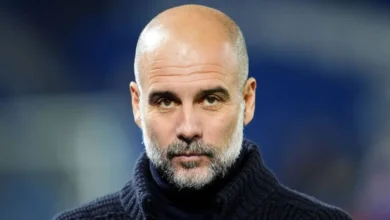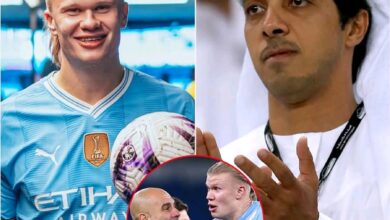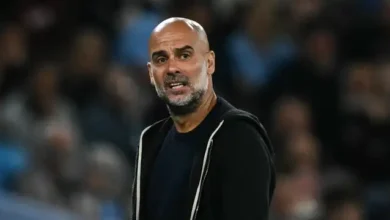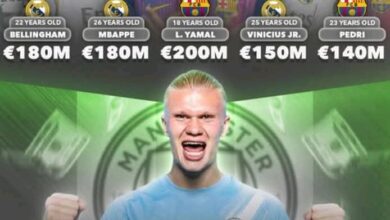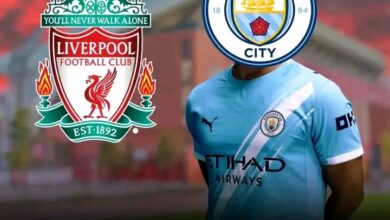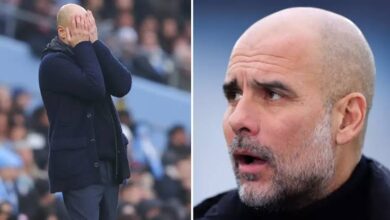What Cole Palmer did could give Man City future transfer boost amid dressing room ‘revenge’ comment
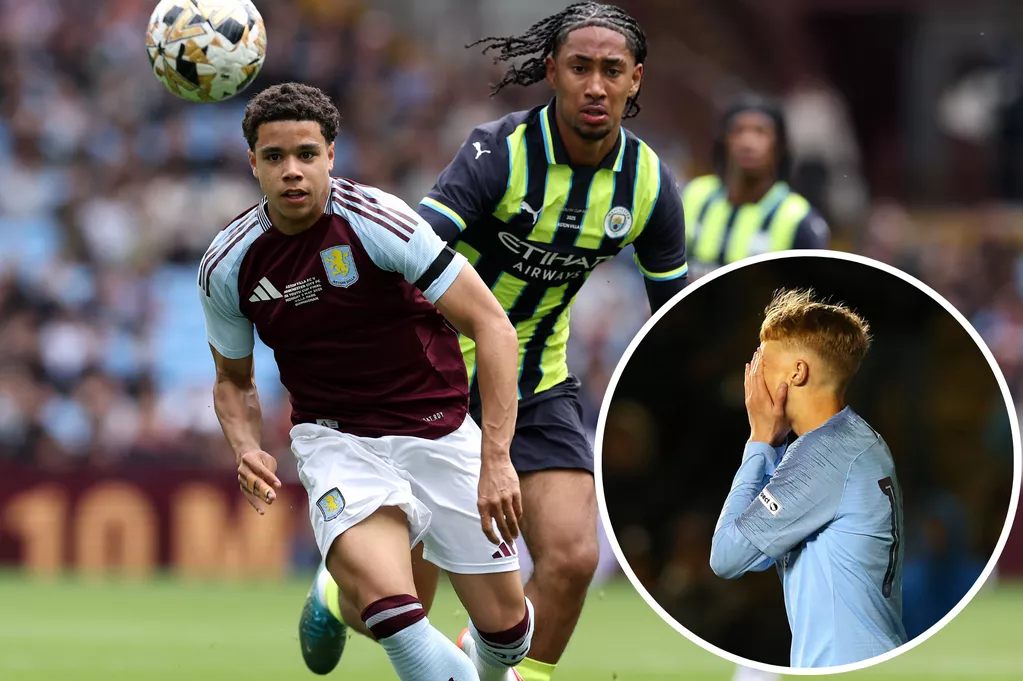
As the final whistle blew at Villa Park, there was a moment of stunned silence from the Manchester City youth squad. Twenty-seven consecutive victories, months of dominance, countless goals scored, and very few conceded – all culminating in this devastating moment of defeat in the most important match of their season. One player, visibly more affected than the others, immediately disappeared down the tunnel, seeking a moment of solitude in the away dressing room.
The sense of invincibility that had carried them through the season had finally been pierced. Many of these young players, in pre-match interviews, had spoken candidly about feeling unbeatable whenever they stepped onto the pitch. It wasn’t arrogance – merely the natural confidence that comes from such sustained excellence. Since August, they had known nothing but victory, working diligently throughout the week and consistently delivering results on matchdays.
“We’ve been in this position before, where we’ve had to come from behind,” one player had remarked earlier in the season after a hard-fought comeback. “But there’s always this feeling in the squad that we’ll find a way through.” That resilience had been their hallmark – until today.
Their title-clinching victory over Derby County just last week – a dramatic, last-gasp win that sparked jubilant celebrations and a pitch invasion led by coach Oliver Reiss – proved to be the final triumph in their record-breaking run. The sight of Reiss at the bottom of a pile-on, his tactical clipboard tossed aside in the euphoria, will remain one of the enduring images of this exceptional campaign.
Preparation Challenges
The preparation for the final was far from ideal. The club’s injury crisis at under-21 level had forced several key under-18 players to step up for a crucial match against Arsenal just 45 hours before the Youth Cup final. Among those asked to pull double duty was star forward Reigan Heskey, who had played through extra time in that fixture and appeared uncharacteristically subdued at Villa Park. Meanwhile, creative maestro Ryan McAidoo, whose flair and vision had been instrumental throughout their cup run, could only watch from the sidelines, his foot encased in a protective boot following the Arsenal match.
When asked if these circumstances had affected the performance, Coach Reiss dismissed the suggestion. “We prepare for all eventualities,” he stated firmly. “The players know what’s expected of them regardless of the circumstances. Today, Villa were simply better.”
Thomas Krucken, City’s academy director, had emphasized before the final that one defeat – regardless of the occasion – would not define the academy’s progress or philosophy.
“For us, pathway and player development counts most, obviously,” Krucken explained. “Winning trophies for me is part of excellent talent development and qualities in the squad. And for us, as Manchester City, we always want to be competitive. And when we enter a final, which is great, obviously we want to win the final.”
“Winning trophies is for me part of development. So it’s important, but of course more important is how the players develop and deserve it over the whole season, especially the under-18 group, all the youth teams. When you win so many games in a row and play at that consistent level, it’s a great achievement.”
Lessons from History
The experience itself holds significant value. Several of City’s current youth stars, including midfield general Kian Noble and commanding defender Kaden Braithwaite, had spoken prior to the final about their memories of watching the 2019 Youth Cup final as academy prospects. On that occasion, City’s talented squad was defeated on penalties at the Academy Stadium, but the result did nothing to diminish the careers that would follow for those involved.
That 2019 squad serves as a powerful reminder of the perspective needed following youth team disappointments. The list of alumni from that defeated team reads like a who’s who of emerging European football talent:
- Taylor Harwood-Bellis, now establishing himself at Southampton and breaking into the England setup
- Eric Garcia, a regular for both Barcelona and Spain’s national team
- Felix Nmecha, excelling in the Bundesliga with Borussia Dortmund and representing Germany internationally
- Jeremie Frimpong, one of Europe’s most exciting full-backs at Bayer Leverkusen and a Netherlands international
- Cole Palmer, whose trajectory from City prospect to Chelsea star and European Championship winner represents the pinnacle of academy success
- Tommy Doyle, carving out an impressive Premier League career at Wolves
- Fisayo Dele-Bashiru, making waves in Serie A with Lazio and featuring for Nigeria
Most symbolic among them is Palmer, whose missed penalty in that 2019 shootout represented perhaps the lowest moment of his youth career. Six years later, Palmer has transformed into one of the Premier League’s most clinical finishers from the spot, a £42 million transfer coup for Chelsea, and a European Championship final goalscorer for England. His journey from Youth Cup heartbreak to elite performer provides the perfect blueprint for the current crop of City youngsters.
The Transfer Equation
The financial aspect cannot be ignored. The collective transfer fees generated by that 2019 squad have already exceeded £70 million for Manchester City – a remarkable return on investment for the academy operation. Palmer’s sale alone accounted for approximately £42 million, while other departures have contributed significantly to the club’s financial ecosystem.
In an era of Profit and Sustainability Rules (PSR) and increasing scrutiny of spending, the ability to generate substantial revenue through academy products has become a crucial component of elite clubs’ business models. For Manchester City, whose recruitment and wage structure places them among Europe’s highest spenders, the cultivation of saleable assets from within represents both sporting excellence and financial prudence.
The 2025 FA Youth Cup finalists possess similar potential. Industry insiders have already identified several members of the current squad as having top-flight potential, with European clubs monitoring their development. If they follow trajectories similar to their 2019 predecessors, City could be looking at another substantial windfall in the coming years.
This generation appears to have even greater depth than the 2019 group. Beyond the headline names like Heskey and McAidoo, there’s exceptional talent throughout the squad. The defensive partnership that had conceded just seven goals in 27 matches before the final has already attracted scouts from across Europe’s top five leagues. The midfield engine room features technically gifted players who embody the positional intelligence and press-resistance that defines City’s first-team model.
The Wider Context
The youth setup at Manchester City has undergone significant transformation under the ownership of the City Football Group. What was once a respectable but unremarkable academy has evolved into one of Europe’s premier talent factories, with state-of-the-art facilities at the £200 million City Football Academy serving as both the physical and philosophical hub of the operation.
The club’s investment goes beyond infrastructure. City have assembled an elite coaching team with expertise spanning technical development, tactical understanding, physical preparation, and psychological support. The holistic approach ensures that prospects are developed as both players and people, with education and personal growth considered equally important to footballing progress.
This comprehensive support structure extends to the transition phase between academy and senior football. Unlike some clubs where the leap from youth to first-team training can be daunting, City have created intermediate stages and pathways to ease this progression. The under-21 team, the club’s loan network, and the broader City Football Group provide multiple routes to senior exposure.
Last season’s Youth Cup-winning captain, Jahmai Simpson-Pusey, offered valuable insight on this transition. “When you go up to train with the first team, they don’t care if you’ve won the Youth Cup,” he revealed. “They treat every young player exactly the same – you’re there to work, learn, and prove yourself. The standards are incredible, but they’re also supportive. They remember what it was like to be in your position.”
Bouncing Back
As the initial shock of defeat subsided in the Villa Park changing room, Coach Reiss was heartened to see some smiles returning to his players’ faces. The conversation had already begun to shift toward their upcoming opportunity in the U18 Premier League national final, where City will face the winners of the Southern section.
In a twist of fate that could provide immediate redemption, the favorites to emerge from that section are none other than Aston Villa – the very team that had just defeated them. As City’s squad departed Villa Park, they could hear the jubilant celebrations emanating from the home dressing room. Several players turned to Reiss and expressed their determination to “get revenge” should they face Villa again, this time on home turf at the Academy Stadium.
“That’s exactly the response I want to see,” Reiss commented. “Champions aren’t defined by never experiencing defeat – they’re defined by how they respond to it. Today hurts, but that pain can fuel something special if we channel it correctly.”
This sentiment was echoed by Thomas Krucken, who viewed the defeat as a valuable learning experience. “In development, adversity is often more instructive than success,” he observed. “These players have experienced what it feels like to be unstoppable for months. Now they’ve experienced disappointment on a big stage. How they process that, individually and collectively, will be fascinating to watch.”
The Personal Touch
Behind the statistics, tactical analysis, and financial projections are human stories. For many of these teenagers, the FA Youth Cup final represented the most significant moment of their fledgling careers – a chance to inscribe their names in the club’s history and announce themselves to a wider audience.
The tears shed in the dressing room were genuine, the disappointment profound. Some players were comforted by teammates, others preferred to process their emotions privately. The coaching staff navigated this delicate moment with care, allowing space for reflection while gently steering thoughts toward future challenges.
For City’s academy psychologist, such moments are as important as any technical or tactical session. “These are formative experiences,” the specialist explains. “Elite sport inevitably involves setbacks. Learning to contextualize disappointment, extract lessons, and rebuild determination are essential skills for any player who harbors ambitions of reaching the top level.”
The club’s approach to youth development emphasizes these psychological aspects alongside physical and technical growth. Resilience, adaptability, and emotional intelligence are cultivated with the same care as passing technique or positional understanding. In this context, the FA Youth Cup final defeat represents not a failure but a development opportunity.
The First-Team Connection
The youth team’s campaign has not gone unnoticed by those at first-team level. Pep Guardiola, known for his attentiveness to academy progress, has regularly requested updates on the under-18s’ remarkable season. Several senior players, including those who once wore the sky blue shirt at youth level, sent messages of encouragement before the final.
Club legend Kolo Toure, now working within City’s coaching structure, was present at Villa Park and visibly affected by the team’s disappointment. His reaction at full-time – a mixture of empathy and determination – spoke volumes about the club’s unified approach to player development. Toure could be seen speaking intensely with one particularly disconsolate defender, sharing wisdom gained from his own illustrious career that included both triumphant highs and devastating lows.
The integration between youth and senior setups is more fluid than ever at City. Guardiola’s willingness to provide first-team opportunities to deserving academy products has been demonstrated repeatedly during his tenure. The likes of Phil Foden, Cole Palmer (before his departure), Rico Lewis, and Oscar Bobb have all benefited from this meritocratic approach. Their success serves as powerful motivation for the current under-18 squad – tangible proof that the pathway exists for those who earn it.
Looking Forward
The immediate focus for City’s youngsters is the U18 Premier League national final – an opportunity to finish their domestic season with silverware despite the Youth Cup disappointment. Beyond that, individual pathways will be carefully plotted during the summer months.
Some players will be earmarked for under-21 promotion, others for loan opportunities within the City Football Group or beyond. A select few may be invited to join the first team’s pre-season tour, while others will continue their development within the academy structure. Every decision will be tailored to individual needs, strengths, and development areas.
For the coaching staff, the Youth Cup final represents valuable data to inform future approaches. The tactical challenges posed by Villa, the psychological impact of the occasion, and the physical demands of a congested schedule will all be analyzed thoroughly. This analytical approach ensures that lessons are extracted from every experience, positive or negative.
“We’re constantly evolving,” explains Reiss. “The game is always changing, and our methodology must adapt accordingly. We’ll take everything from this season – the 27 wins and today’s defeat – and use it to improve our program.”
The Palmer Parallel
The Cole Palmer comparison remains particularly instructive. Here was a player who experienced the exact disappointment that today’s squad is feeling – Youth Cup final defeat at a crucial stage of his development. Rather than being defined by that moment, Palmer used it as motivation, refining his game, building resilience, and eventually forcing his way into first-team consideration.
When first-team opportunities proved limited, Palmer made the brave decision to leave his boyhood club. That £42 million move to Chelsea has been vindicated by his extraordinary performances, establishing himself as one of the Premier League’s breakout stars and a full England international. His journey offers multiple lessons for City’s current academy players – about resilience, self-belief, patience, and sometimes the courage to seek opportunities elsewhere.
Palmer’s development also represents significant value creation for City. The club invested years of coaching, facilities, and support in his development, ultimately realizing a substantial return when he departed for Chelsea. This model – developing elite talents who contribute either on the pitch or through transfer fees – underpins the academy’s strategic importance.
Conclusion
As Manchester City’s youth team comes to terms with FA Youth Cup final defeat, the wider context provides ample reason for optimism. The remarkable 27-game winning streak remains an extraordinary achievement, the talent within the squad is undeniable, and the club’s track record of developing elite players suggests many will go on to successful careers.
The experience of the 2019 finalists offers a powerful reminder that youth team results, even in prestigious competitions, are ultimately secondary to individual development. That squad’s subsequent achievements – from international recognition to Premier League stardom to generating over £70 million in transfer fees – demonstrates the multiple ways success can be measured.
For the players who felt the pain of defeat at Villa Park, the journey is just beginning. Some will follow Palmer’s path to Premier League stardom, others will forge careers throughout the football pyramid, and all will carry the lessons of this season – both the exhilarating wins and the painful final defeat – throughout their professional lives.
As they left Villa Park with the sounds of celebration echoing from the home dressing room, their thoughts had already turned to potential redemption in the upcoming league final. “We want Villa again,” one player remarked to his coach. “On our turf next time.” That competitive spirit, that refusal to be defined by defeat, suggests that Manchester City’s academy continues to develop not just technically excellent footballers, but mentally resilient ones too – perhaps the most important quality of all for those aspiring to reach the summit of the game.






